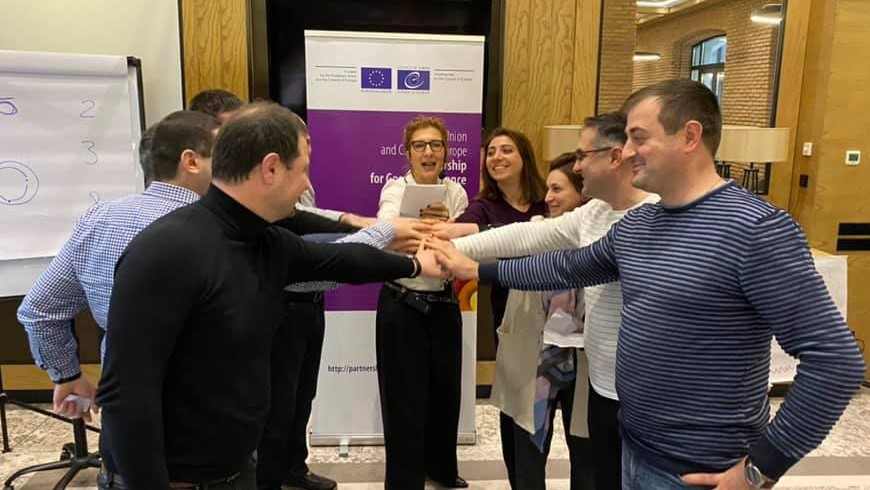The Council of Europe and the European Union organized training of trainers (ToT) for prosecutors on application of pre-trail measures on 6-7 February 2020. Participants explored the application of pre-trial measures under article 5 of the European Convention on Human Rights (ECHR). Special attention was devoted to coercive measures and alternatives to detention, also in relation to women offenders, search, seizure, property arrest, covert investigative measures. The topics proposed, practical exercises, and case-studies used to present the ECtHR’s case-law in a dynamic way, in line with the principles of adult education. As a result of the training 10 trainer prosecutors holding managerial positions advanced knowledge on the notion of good faith and due diligence of the authorities when implementing measures affecting the liberty of the individual, gender-sensitive application of coercive measures to female offenders and suspects and national legislation related to deprivation of liberty vis-à-vis article 5 ECHR. During the implementation of the project trainer prosecutors will train their peers on application of the pre-trial measures in line with ECHR standards.
The activity was organised within the EU/CoE Partnership for Good Governance Project "Supporting Criminal Justice Reforms - Tackling Criminal Aspects of Judicial Reform".
Testimony : Nana Gugutishvili, Deputy Prosecutor

I participated in the training of trainers on the standards of use of preventive measures, within the framework of which the invited experts apart from covering theoretical aspects, shared with the participants their practical experience as well. The training was interactive, giving the trainees the best opportunity to get engaged in the training process.
The knowledge gained from the training is important to me as a prosecutor in the course of implementation of my daily prosecutorial duties, as well as a trainer, as it is conducive to sharing my knowledge and experience with my colleagues in the course of cascade trainings, planned to be conducted for prosecutors on given topic. The training was conducted within the framework of joint project of the Council of Europe and the European Union. "





